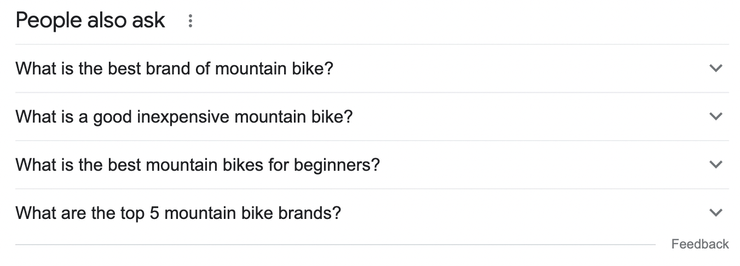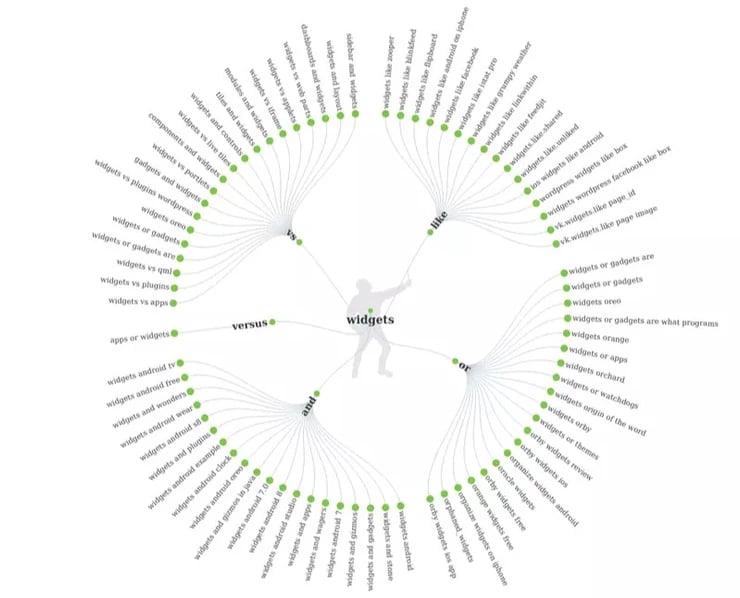Is Topical Authority Replacing SEO?
Is search engine optimization on its way out? Honestly, probably not. Best practices for SEO are not all of a sudden obsolete or fading away. The fact of the matter is, when it comes to Google’s criteria for ranking sites, topical authority is rising in popularity. Topical authority is a perceived authority over a niche as opposed to authority over a singular idea. For example, a niche could be considered the overarching topic of marketing. Whereas a singular idea would be a topic like email marketing.
Gaining topical authority positions your company as an expert in your industry — making your organization appear to web searchers as the go-to source for quality information on your chosen niche. Google (and other search engines) are now using topical authority to rank the most accurate and relevant content in search engine results pages (SERPs).
When we typically talk about authority in SEO, marketers tend to think about building backlinks. Yet, as Google learns more about semantics and word associations, link relevancy is likely to decrease over time. Instead, organizations that focus on covering niche topics specific to their company’s services will rank higher in SERPs. Continue reading to learn more about topical authority and how it may just be the next best strategy to ranking higher in search engines.
Why is Topical Authority Important?
In 2013, Google developed the Hummingbird algorithm which enabled the search engine to evaluate natural language and analyze the meaning of words with semantics. As a result, Google now ranks the most relevant content based on topical authority higher than content that is only optimized for a particular keyword. Ultimately, Hummingbird disables fraudulent sites from “gaming the system” and gives truly helpful sites the opportunity to obtain increased organic traffic.
Furthermore, gaining topical authority positions your company as an expert on a certain topic, boosting your brand credibility. Think about it. Would you trust a plumber to do electrical work in your house? Of course not! So why would you trust a website that has zero credibility on the topic you're searching for?
Topical authority can also be described as a website’s depth of expertise. Let’s take a look at an example. Let’s say you own a bicycle shop that specializes in road bikes. Your website provides content about different road bike parts and the best regional places for road biking. Over time, your website will gain topical authority over road biking. However, if the marketing team at your bicycle shop were to also put content on the website about, let's say, used motorcycles in your state, your site would lose topical authority in its domain: road cycling.
Generating large volumes of quality content around a specific topic helps achieve topical authority. In addition, focusing on strategies for topical authority can bring forth increased chances of earning backlinks, gaining domain authority, and ranking higher in SERPS.
Topical Authority vs. Keyword Research
Rather than gaining ownership over a certain keyword, topical authority is the level of command a website has over an extensive topic. This is important to note because, essentially, two sites can post blogs covering the exact same topic with the same SEO credentials, and the site with topical authority will rank higher due to its perceived level of command over the subject. The main difference between topical authority and keyword research is that optimizing a web page for a specific keyword is much simpler and quicker than gaining topical authority. Not everyone can obtain topical authority over a specified niche and it takes a while to achieve.
Now, getting back to our bicycle shop example, let’s say a bike company continuously writes blogs about different types of bikes — brand names, which bike would be best for mountain trails, etc. This company ranks high in search engine results because it has earned topical authority by writing blogs on the same broad topic for years. On the other hand, a department store that just began selling bikes wants to gain organic traffic from Google results pages. So, they too, write a blog about the best bikes for mountain trails. In this scenario, the bike company will rank higher in SERPs versus the department store due to its perceived authority over the topic.
Topical Authority Means You Have the Answers
Consistently writing digital content on a broad topic isn’t enough to achieve topical authority. Topical authority means your web pages adequately answer the questions your target audience is asking. Furthermore, just writing about a certain topic over and over again will not earn you topical authority. But consistently answering the burning questions people have about that topic will position your brand as an expert in the industry, enabling your site to rank higher in SERPs and boost your credibility. But keep in mind, the content you create must be educational and accurate in order to achieve higher rankings.
So how will you know which questions your target audience is asking? For starters, you can send out surveys via email or social media. These days, people are loving the “This or That” questions on Instagram stories! Collecting data on which topics your ideal customers want to learn more about, have questions about, etc., will help point you in the right direction to begin writing your content. Additionally, consider asking your sales and support teams what questions they get asked the most. Then, begin producing content on your site that addresses these most-asked questions.
Another great way to determine what questions people are asking is to take a look at Google Suggestions. For example, if you search for a topic like mountain bikes in Google, you will see a section within the search results titled “People Also Ask.”
Below are the most common questions Google receives based on the keyphrase “mountain bikes.”

The picture above provides you with four potential blog ideas to get started. Try it out for yourself! And moving forward, do your best to answer all the questions collected from your surveys, your knowledge of the industry, trending topics, and Google Suggestions when creating digital content.
How to Develop a Topical Authority Strategy
When creating a topical authority strategy, it’s important to write about smaller topics of a larger subject. In fact, a good topical authority strategy will expand your list of keywords as you write about subtopics that relate to a broader topic. For example, if the broad topic is marketing, the subtopics you could write about would be email marketing, lead generation, and inbound marketing strategies. Each subtopic helps you discover more keywords to rank for. So this begs the question, is topical authority replacing SEO? Or is topical authority augmenting SEO?
Take a look at the graphic below. It depicts a keyword with a bunch of relevant questions and keyphrases surrounding it. This is a visual representation of Google Suggestions. For instance, if you search for “widgets” the suggestions that appear may include words such as “and”, “or”, “like”, or “versus” leading up to a keyphrase like “widgets or gadgets”.

From here, you can create a content curation plan to address all of the relevant hot topics in the niche you want to gain authority over. Start by writing down all the relevant keyphrases and subtopics you want to address. Then create outlines for each webpage, blog, and landing page. Next, get writing! The more educational and accurate content you create, the more topical authority you will gain.
Final Thoughts
The truth is, SEO strategies like keyword research and backlinking are not going anywhere at the moment. However, topical authority is making headway and should therefore be considered another asset to add to your overall SEO strategy.
Remember, topical authority isn’t earned overnight. It takes time, hard work, and a lot of content producing (writing blogs, making videos, creating podcasts, etc.) to accomplish! But if you take away anything from this article, let it be to keep writing accurate and educational content about subtopics relating to a broader topic aligned to your business objectives and offerings. If you do this on a consistent basis, you will begin to gain topical authority, rank higher in SERPs, and obtain greater organic traffic to your site.
For an in-depth analysis of how you can begin gaining topical authority, schedule a consultation with us, and let’s get started!




